Edition: 28 August to 8 September 2023
ANTIMICROBIAL RESISTANCE (AMR)
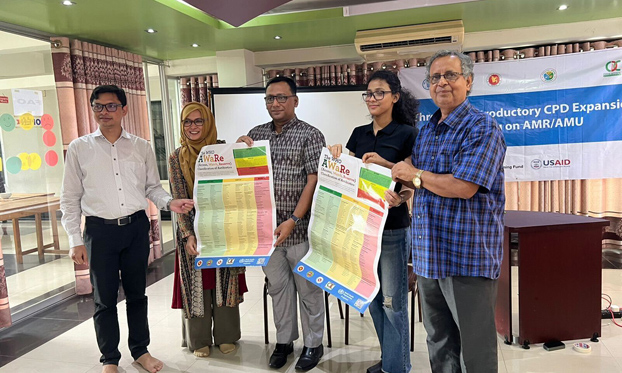 ©FAO Bangladesh | BANGLADESH FAO continues to enhance Bangladeshi capacity to tackle AMR FAO conducted another batch of the three-day continuing professional development (CPD) expansion training on antimicrobial usage (AMU)/AMR for professionals from 26 to 28 August 2023, funded by Fleming Fund UK. The program was designed to deliver capacity-building and sensitization packages on rational AMU as a part of CPD for Bangladeshi human and animal health professionals. Practitioners from different government and private institutions were sensitized and motivated on the prudent and responsible use of antibiotics, according to WHO AWaRe categorization and standard treatment guidelines developed for Bangladesh. |
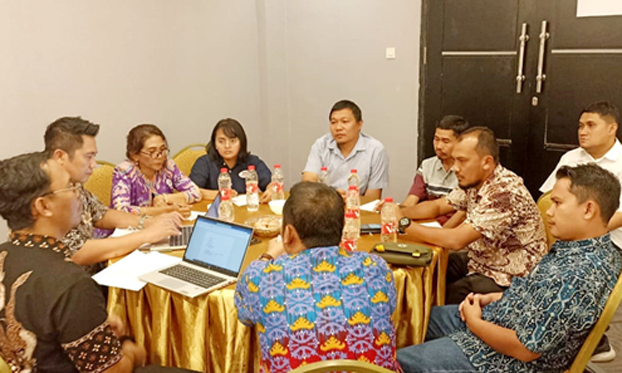 ©FAO/Gunawan Utomo | INDONESIA New project preparation on antimicrobials in agrifood systems FAO and the Ministry of Agriculture (MoA) held a coordination meeting for the new pilot project initiative RENOFARM (reduce the need for antimicrobials in agrifood system) between 30 August and 1 September 2023. RENOFARM is an FAO global initiative aiming for healthier and more sustainable agrifood systems by addressing AMR at the farm level through innovation, technologies and collaboration. Scheduled to be launched in 2023, RENOFARM will run for a year and is fully aligned with the targets enshrined in the Muscat Manifesto that Indonesia has endorsed. Such as reducing the total amount of antimicrobials used in the agrifood system by at least 30-50 percent from the current level by 2030 and zero use of medically important antimicrobials for human medicine in animals for non-veterinary medical purposes or in crop production and agrifood systems for non-phytosanitary purposes. The event was supported by the Australia One Health Fund via FAO HQ. |
PARTNERSHIP
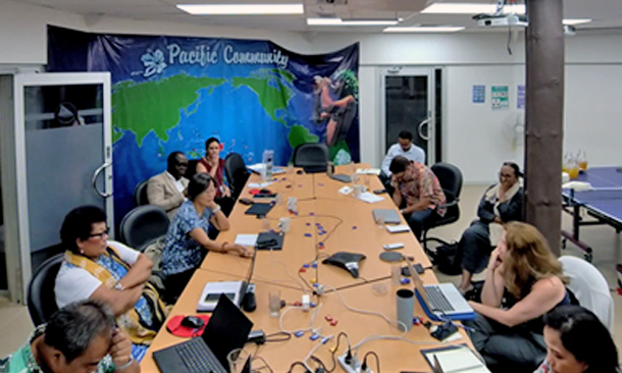 ©fao/Kachen Wongsathapornchai | ASIA AND THE PACIFIC USAID Global Health Security partners' meeting Representatives from FAO, Xiangjun Yao and Joseph Nyemah (joined in person); Raana Asgar and Kachen Wongsathapornchai (joined virtually), attended the USAID Global Health Security partners’ meeting held in Fiji on 1 September 2023. This year the USAID Global Health Security Programme, implemented by FAO Emergency Center for Transboundary Animal Diseases (ECTAD), is expanding to Fiji and other Pacific Islands countries for period 2022-2027. The meeting welcomed representatives from USAID, DFAT Centre for Health Security, WHO Fiji, and the Pacific Community to discuss and strengthen collaboration for implementing the programme. |
-using-joint-external-evaluation-(jee).jpg?sfvrsn=cc0fe895_1) ©fao/Andri Jatikusumah | INDONESIA Assessment of the International Health Regulations (IHR) using Joint External Evaluation (JEE) With support from USAID, FAO facilitated a hybrid meeting with cross-sectoral ministries and institutions to discuss and carry out a self-assessment of International Health Regulations (IHR) using the Joint External Evaluation (JEE) 3.0 from 4 to 5 September 2023. The meeting focused on the zoonoses section, which has been adopted as a reference tool to assess Indonesia’s capacity to detect, prevent and control diseases. It also gathered participants' inputs, assessments and responses for the technical questions in the JEE 3.0, focusing on component P5 on zoonotic disease (related to surveillance, response and sanitary animal production practices) and D2 on surveillance (related to early warning surveillance functions, event verification and investigation and analysis and information sharing.) |
SURVEILLANCE
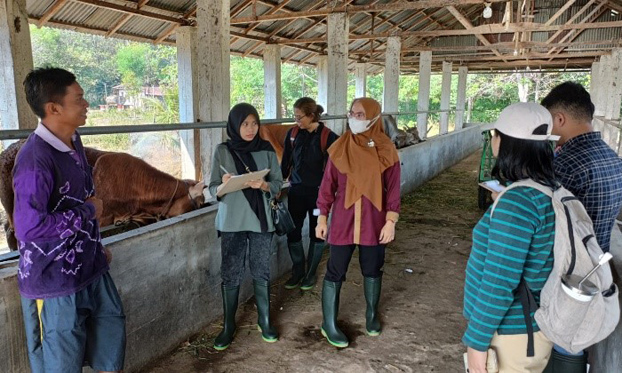 ©FAO/Riana Arief | INDONESIA Outbreak investigation training in South Kalimantan FAO, together with the Indonesian Ministry of Agriculture, conducted refresher training on outbreak investigation in South Kalimantan Province from 4 to 8 September to improve rapid detection and emergency response for foot and mouth disease (FMD), lumpy skin disease (LSD) and other infectious animal diseases, such as avian influenza. Twenty-seven animal health officers from all districts and cities in South Kalimantan Province and Disease Investigation Center (DIC) Banjarbaru joined the training. The participants were trained to conduct animal disease outbreak investigations through classroom lectures, group discussions and exercises, sharing experiences and field practice activities. At the same time, the MoA also introduced new technical guidelines for animal disease investigation that are being developed to complement the new MoA Regulation No. 31 Year 2023 on animal disease monitoring and identification. This has enabled the participants to conduct more effective investigations and better report results to their respective veterinary authority officials and the national animal health information system (iSIKHNAS). The training also improved field officers' capacity to detect and respond to diseases rapidly, contributing to strengthening the animal health systems at local and national levels. |
ONE HEALTH
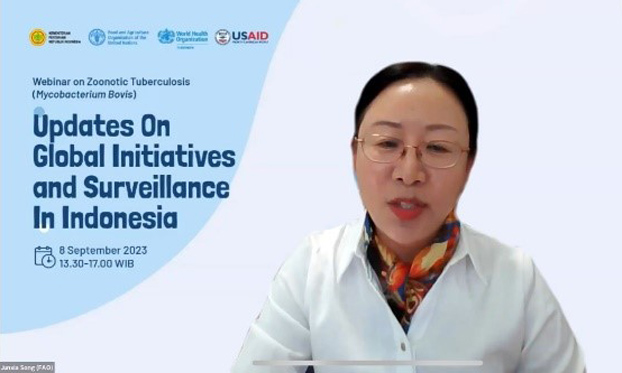 ©fao/Saskia Soedarjo | INDONESIA AND ASIA AND THE PACIFIC Webinar on zoonotic tuberculosis |
AFRICAN SWINE FEVER
-program-in-west-kalimantan.jpg?sfvrsn=c3c2902a_1) ©FAO/Ratmoko Saputro | INDONESIA Introductory meeting to replicate Community ASF Biosecurity Interventions (CABI) program in West Kalimantan As part of the effort to reduce the risk and impact of ASF on smallholder livelihoods, FAO and the Ministry of Agriculture (MoA), thanks to the support from Ministry of Agriculture, Food and Rural Affairs (MAFRA), Republic of Korea (ROK), held a meeting to introduce and advocate for the implementation of Community ASF Biosecurity Interventions (CABI) in West Kalimantan on 6 September 2023. The CABI concept design was introduced in the meeting to strengthen biosecurity measures for smallholder pig farming through practical guidelines, training packages, and information, education and communication (IEC) materials. Participants also discussed four major challenges, encompassing the issues of a decreased pig population, risk of restocking, socioeconomic problems and the adaptation of the CABI concept in household farms, to identify the priority locations for piloting. |
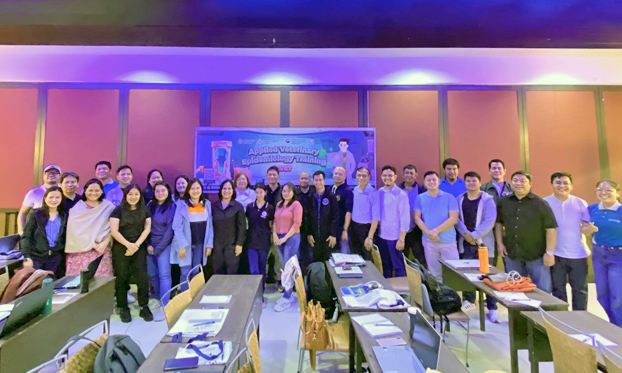 ©BAI | THE PHILIPPINES Veterinary epidemiology training and ASF preparedness workshop The National ASF Prevention and Control Program of the Bureau of Animal Industry (BAI), together with FAO, Ministry of Agriculture, Food and Rural Affairs Republic of Korea (MAFRA) of the Republic of Korea, and the Philippine College of Veterinary Epidemiologists conducted the Applied Veterinary Epidemiology Training (AVET) and ASF preparedness workshop from 29 August to 1 September 2023. Capacity building of local veterinarians on applied veterinary epidemiology helps bridge gaps in the prevention and response to disease outbreaks in the animal sector. The workshop aimed to develop skills in conducting and implementing epidemiologic studies and ensuring accurate and effective epidemiologic investigations during disease outbreaks. |
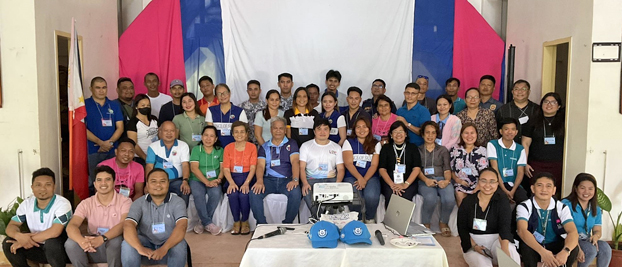 ©BAI | THE PHILIPPINES ASF preparedness tabletop exercise An ASF preparedness tabletop exercise was conducted by the National ASF Prevention and Control Program (NASFPCP) of the Bureau of Animal Industry (BAI), with support from FAO and MAFRA, the Republic of Korea, from 6 to 8 September 2023, in the province of Siquijor. Siquijor is an island province in the Central Visayas Region (Region 7) and one of the country’s few ASF-free provinces. However, as per the NASFPCP analysis, Region 7 is a high-risk area for ASF and numerous ASF cases were reported this year. The activity was conducted to assess and improve the capacities and ASF plan in Siquijor to prevent the incursion of ASF into the province. Key players and stakeholders, including the veterinarians, police, coast guards and extension workers, are now more knowledgeable and equipped to prevent and control ASF incursion in the province of Siquijor. The training program helped the participants better understand of preparedness plans and prevention measures to be taken in case of a potential ASF outbreak. |
ADVOCACY / RISK COMMUNICATION
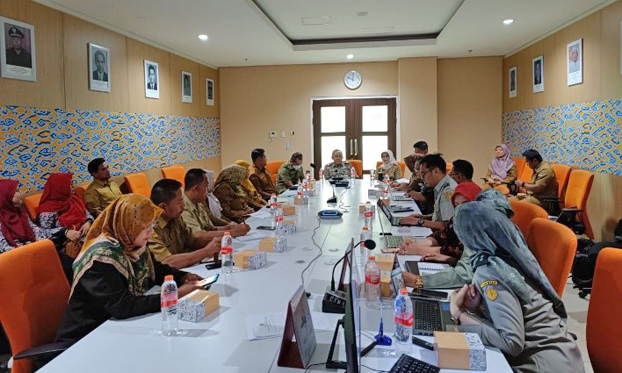 ©FAO/Ratmoko Saputro | INDONESIA Preparation of primary school curriculum for zoonoses awareness FAO and the Indonesian Ministry of Agriculture (MoA), with support from USAID, conducted a coordination meeting with the Ministry of Education, Culture, Research and Technology on 28 August 2023 on the Implementation of the "Merdeka Belajar" (freedom in learning) curriculum for zoonoses awareness in primary schools. This meeting focused on implementing the curriculum to instill zoonoses awareness among primary students and incorporating this campaign into elementary education through the "Guru Penggerak" (mover teachers) and “Sekolah Penggerak” (mover schools) programs. Key outcomes encompass plans to establish a Memorandum of Understanding (MoU) among relevant authorities and create cooperative agreements between educational offices and animal health services in West Java Province, Sukabumi, and West Bandung districts. To facilitate this initiative, webinars on zoonoses awareness will be held for teachers, principals and supervisors. |
